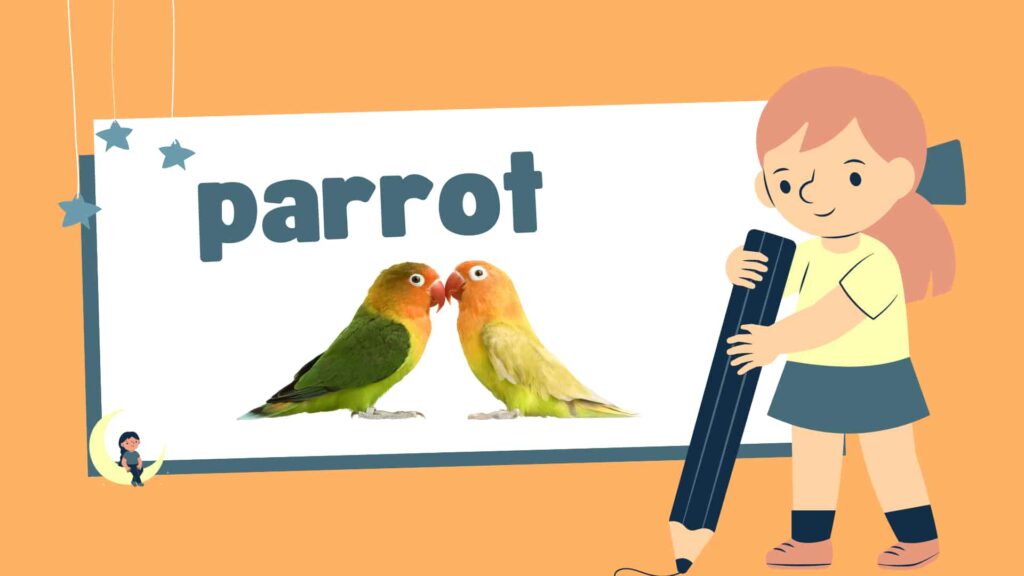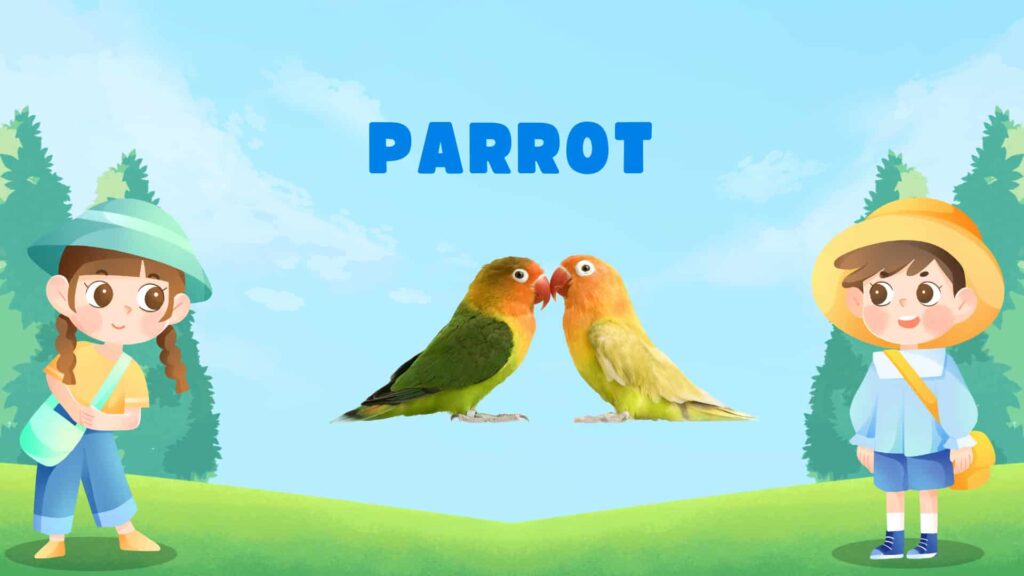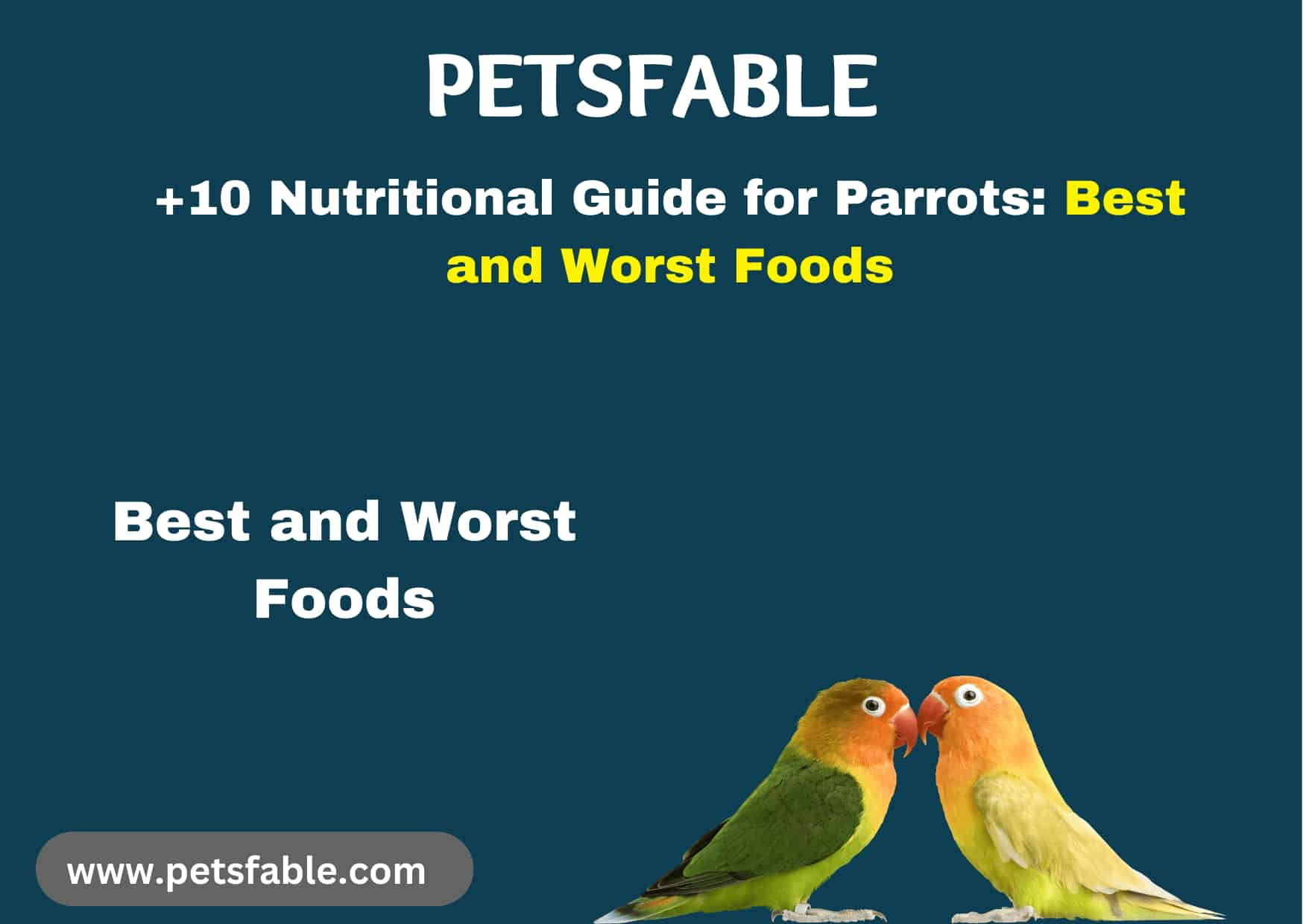Understanding a Nutritional Guide for Parrots
If you're puzzled about what to feed your parrot or are curious about the essentials of a Nutritional Guide parrot diet, you're in the right place. This guide provides insights into what parrots eat, their favorite foods, and what foods to steer clear of to maintain their health and vitality.Essential Diet Tips for Parrots
Parrots are omnivores, meaning they need a varied diet that includes both plant and animal sources to remain healthy and active. In captivity, a parrot’s diet mainly consists of pellets, supplemented with fresh fruits, vegetables, and occasional protein sources. While seeds are a favorite treat for many parrots, they shouldn’t be the sole component of their diet due to high fat content and potential nutritional imbalances.

What Parrots Eat in Nature
In their natural habitat, parrots enjoy a diverse diet:
- Nuts: Favorites include almonds, walnuts, and pistachios.
- Fruits: Parrots often eat wild berries, figs, and other fruits available in their environment.
- Seeds: They consume a variety of seeds like sunflower, pumpkin, and sorghum.
- Flowers: When other foods are scarce, parrots may eat safe edible flowers such as daisies and hibiscus.
- Insects: Parrots also supplement their diet with protein-rich insects like caterpillars and earthworms.
Foods Parrots Prefer
Seeds and nuts are typically favored by parrots but should be offered in moderation:
- Seeds: High in energy but also fat, seeds should be fresh and only a small part of the diet.
- Nuts: A good protein source but should be limited to avoid excess fat intake and potential toxins such as aflatoxins found in peanuts.
Fruits are also loved by parrots for their flavor. However, due to their high sugar content, fruits should be given in moderation to avoid health issues related to overconsumption of sugar.
Dangerous Foods for Parrots
Certain foods pose health risks to parrots and should be avoided:
- Avocado and Chocolate: These contain substances that can be toxic to parrots.
- Caffeine and Alcohol: These can be fatal and should never be given to parrots.
- Onions and Garlic: These can cause serious health issues.
- Raw Potatoes and Tomato Stems: These contain harmful toxins.
Special Dietary Considerations
Also read: Your Ultimate Guide to Quaker Parrots: +10 Care Tips And Fun Facts
Specific types of parrots may require particular dietary adjustments:
- Eclectus Parrots: These birds thrive on a diet rich in fruits and vegetables.
- Hyacinth Macaws: Require more nuts in their diet due to their need for higher fat content.
- Lories and Lorikeets: Mainly eat nectar and thus need a specialized diet.
Feeding Practices
- How to Feed: Ensure a balanced diet with a variety of foods to provide a range of nutrients.
- Feeding Baby Parrots: Specialized formulas that cater to their developmental needs are necessary.
- Gravel: Unlike some birds, parrots do not need gravel for digestion.
Recommendations
Feeding your parrot involves more than just providing food; it requires understanding what constitutes a nutritious, balanced diet, what foods are potentially harmful, and how dietary needs can vary by species. Ensuring your parrot has access to a variety of appropriate foods will help keep them healthy, happy, and energetic.
Optimizing Your Parrot’s Diet: What to Include for Health and Vitality
Creating a balanced and nutritious diet for your parrot is essential to ensure they remain healthy and active. Here’s a simple guide on what to include in your parrot’s diet to cater to their nutritional needs effectively.

Vital Components of a Parrot’s Diet
- Fresh Fruits and Vegetables: These are crucial for providing vitamins. Depending on your parrot’s preference, you can serve these chopped, mashed, or whole. Each parrot may have different preferences for how they like their fruits and veggies prepared.
- Seeds: A variety of seeds can be mixed to ensure a balanced intake of nutrients. When creating your seed mix or purchasing one, opt for those without added oils, salts, or preservatives to keep it as natural as possible.
- Pellets: These are specially formulated to meet the nutritional needs of parrots, combining various foods into one high-value product.
- Fresh Water: Essential for hydration and the proper functioning of their body, make sure your parrot always has access to clean, fresh water. Change it regularly and keep the bowl clean to prevent contamination.
Additional Nutritional Guide for Parrots
- Cooked Cereals and Whole Grains: Including maize, barley, oats, wheat, and rice, these foods are rich in carbohydrates and provide some protein. They are essential for giving your parrot the energy needed for their daily activities.
- Raw or Steamed Vegetables: Options like kale, carrots, broccoli, and yellow squash are important in a parrot’s diet. They not only offer vitamins but are also rich in fiber and minerals, supporting overall health.
- Legumes and Sprouts: Foods such as alfalfa sprouts or cooked legumes are excellent protein sources and provide significant fiber. Parrots enjoy these both for their taste and nutritional benefits.
By incorporating a variety of these foods into your parrot’s diet, you ensure they receive a well-rounded intake of essential nutrients. Always remember the importance of moderation and diversity to prevent nutritional excesses or deficiencies. Regularly updating and diversifying your parrot’s diet not only keeps them healthy but also makes mealtime more enjoyable for them.
Read more: Essential Foods for a Healthy Parrot Diet
Essential Foods for a Healthy Parrot Diet
Feeding your parrot a nutritious and balanced diet is crucial for their health. Here’s a straightforward guide to what foods you can offer your parrot to ensure they get the necessary nutrients.
Recommended Foods for Parrots
- Vegetables: These should form a core part of your parrot’s diet.
- Broccoli
- Squash
- Sprouts
- Cauliflower
- Carrots
- Bell peppers
- Chili peppers (parrots can handle the spice!)
- Fruits: Offer these in moderation as they are high in sugar but are good sources of vitamins.
- Banana
- Grape
- Blueberry
- Apple
- Cherry (ensure to remove the pits)
- Nuts: These are great sources of fat and protein but should be given in controlled amounts to avoid fat overload.
- Macadamia nuts
- Walnuts
- Almonds
- Hazelnuts
- Pine nuts
- Seeds and Grains: While seeds should not make up the entirety of the diet, they are important.
- Millet
- Barley
- Chia seeds
- Safflower seeds
- Quinoa
Additional Nutritional Guide
- Vitamins and Minerals: If your parrot’s diet is mainly seeds, they might need supplemental vitamins and minerals. However, consult with a veterinarian to tailor the supplement to your parrot’s needs, as over-supplementation can be harmful.
- Parrot-Specific Snacks: These can be great for training and as treats but should be given sparingly. Choose snacks formulated specifically for parrots to ensure they’re healthy and appropriate.
Also read: +7 Parrot Diet Tips: Safe Herbs That Your Friends Can Enjoy!
A varied diet rich in vegetables, fruits, nuts, and seeds, along with the right balance of supplements, supports a parrot’s overall well-being. Always adjust quantities and ensure a balance to prevent nutritional deficiencies or excesses. Consulting with a vet about your parrot’s diet is a wise step to make sure your feathered friend stays happy and healthy.
Tailored Diets for Specific Parrot Species
Certain parrot species require specialized diets to maintain optimal health, given their unique dietary needs. Understanding and catering to these needs can ensure your parrot thrives in a domestic setting.
Dietary Requirements for Specific Parrot Types
Eclectus Parrots: Eclectus parrots have distinct dietary requirements due to their longer digestive tracts, which allow them to absorb nutrients effectively but also make them susceptible to dietary excess and toxicity. Unlike other parrot species:
- Avoid using pellets as the primary food source due to their processed nature and potential harmful additives.
- Fresh fruits and vegetables, preferably organic, should dominate their diet.
- Include a smaller proportion of seeds, nuts, and occasional pellets to balance their diet.
- Vitamins and supplements should only be administered under veterinary guidance to avoid health complications.
Hyacinth Macaws:
Known for their striking blue feathers and large size, Hyacinth macaws naturally consume a diet high in fat, primarily from palm nuts found in their native habitats. In captivity, they should be fed:
- A variety of nuts to mimic their natural intake.
- Supplemental fruits and vegetables to ensure a balanced diet.
- Pellets and seeds can be included but should not be the core of their diet due to their specific fat requirements.
Lories and Lorikeets:
These birds primarily consume nectar and pollen in the wild and have a specialized brush-like tongue to aid in their feeding habits. Their diet should consist of:
- Specially-formulated wet food that replicates the consistency and nutritional content of nectar and pollen.
- Fresh fruits and flower buds to provide variety and additional nutrients.
- Minimal pellets and seeds, as their digestive systems are not adapted for these harder, dry foods.
Special Diets for Health Conditions
Parrots with specific health issues or injuries may require tailored diets to address their needs. These diets might need adjustments in form, texture, or content, and should always be developed in consultation with a veterinarian to ensure they are nutritionally adequate.
General Dietary Precautions
While aiming to diversify your parrot’s diet, it is crucial to avoid foods that are toxic and could pose health risks:
- Chocolate and caffeine are harmful and potentially lethal.
- Avocado contains persin, which is toxic to parrots.
- Onions and garlic can cause anemia and digestive issues.
- Uncooked beans contain hemagglutinin, which is toxic unless destroyed by cooking.
- Pits and seeds from certain fruits can contain toxins that are harmful to parrots.
Foods to be cautious about include:
- Dairy products, as parrots are lactose intolerant.
- High-fat foods, like excessive nuts or seeds, can lead to obesity and other health issues.
- Salt and artificially sweetened foods should be avoided to prevent health complications.
Feeding Recommendations
For general feeding:
- Choose feeders that are safe and easy for parrots to use without risk of injury.
- Regularly monitor the amount of food consumed and adjust portions based on your parrot’s activity level, health, and size.
- Provide a variety of foods to keep the diet balanced and interesting for the parrot.
For baby parrots:
- Use a formula specifically designed for baby parrots, gradually transitioning them to solid foods.
- Ensure that the food texture is appropriate for the age and development stage of the chick.
Properly understanding and implementing these dietary guidelines can significantly enhance the health and happiness of your parrot, allowing them to lead a vibrant and long life.
Read more: Dietary Requirements for Specific Parrot Types
Parrots Need Gravel in Their Diet
Unlike some other bird species, parrots do not require gravel to aid in digestion. Birds like juncos and finches consume gravel because they ingest seeds with hulls and hard nuts, which need gravel to break down in their gizzards. Parrots, on the other hand, typically crush their food before swallowing and primarily eat softer foods such as fruits, vegetables, and pellets.
Adding gravel to a Nutritional Guide can be harmful. Parrots have smaller intestines compared to other birds, which can lead to complications if gravel becomes trapped, potentially causing obstructions or serious health issues like kidney failure.
Essential Dietary Practices for Parrots
Parrots thrive on a diverse and balanced diet that provides all the necessary nutrients for their health. Here’s what their diet should include:
- Variety in Nutrition: Offer a mix of pellets, fresh fruits, vegetables, and a moderate amount of seeds and nuts to keep the diet interesting and nutritious.
- Special Dietary Needs: Certain species, such as eclectus parrots, hyacinth macaws, lories, and lorikeets, may require specific dietary adjustments. Always consider the particular needs of your parrot species.
- Freshness and Cleanliness: Ensure all food provided is fresh and clean. Regularly remove any uneaten food from the cage to prevent spoilage and potential health risks.
- Monitor Fresh Food Duration: Do not leave fresh foods like fruits and vegetables in the cage for more than two hours to avoid spoilage and pest attraction.
Observing Your Parrot’s Health
Regularly monitoring your parrot’s health can provide early indications of dietary success or issues:
- Physical Indicators: A healthy parrot will display shiny feathers, bright eyes, and an active demeanor.
- Regular Weigh-Ins: Weigh your parrots weekly to track any sudden changes in weight, which can be an early sign of health problems.
By understanding and implementing these dietary guidelines, you can ensure your parrot remains healthy and vibrant. Avoiding gravel and focusing on providing a varied and suitable diet are key components of proper parrot care.
FAQ’s:
Do parrots need gravel for digestion?
No, parrots do not require gravel for digestion as they primarily consume and crush soft foods.
What should a parrot’s Nutritional Guide include?
A parrot’s diet should include a mix of pellets, fresh fruits, vegetables, and a controlled amount of seeds and nuts.
How often should uneaten food be removed from a parrot’s cage?
Remove uneaten food daily to prevent spoilage and potential health risks.
What are the signs of aNutritional Guide parrot?
A healthy parrot has shiny feathers, bright eyes, and an active posture.
Why is it important to regularly weigh a parrot?
Regular weigh-ins help monitor the parrot’s health and detect any potential issues early.
